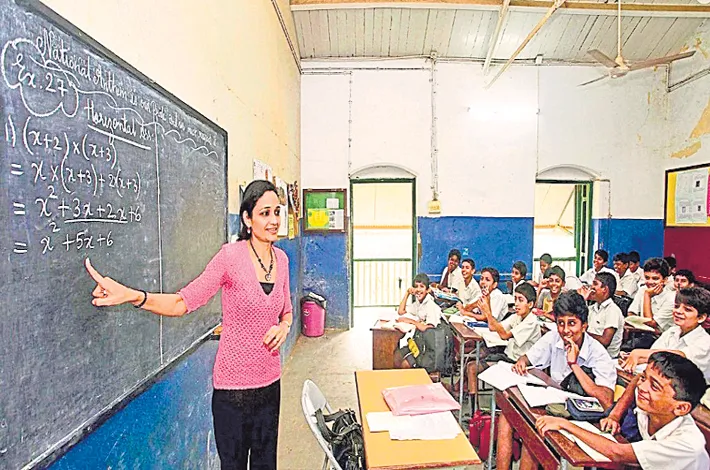Pink slips leave Telangana State teachers in a lurch
13-06-2025 12:00:00 AM

A new school in Medchal removed 20 teachers without a notice. Arbitrary firings have become the norm in Telangana. Murali K, (name changed on request) a principal of a school in Dr A S Rao Nagar was asked to stop coming from the following day. No reason was given. A reputed school in Jubilee Hills fired teachers allegedly because the secretary of the school did not like them.
Speaking to Metro India, Chava Ravi, President, United Teachers Federation of Telangana highlighted that there are no clear rules or guidelines preventing private school managements from firing teachers at will. Although the Private Schools Act (1/1982) outlines certain operational norms for private schools, implementation remains weak.
Employment of teachers in unaided private schools is dependent entirely on the discretion of the school managements.
Ravi also said that private school teachers do not fall under the Labour Act or any other legislation that offers them protection. Many schools reportedly hire unqualified teachers for as little as Rs 6,000–7,000 per month to maximise profit, compromising the quality of education. In addition, some managements are even planting informers among staff to report dissenting voices, leading to retaliatory dismissals.
Telangana Recognised School Managements Association (TRSMA) has been voicing the concerns of private school managements especially on fee regulation. S Madhusudan, President TRSMA said, “A job portal for private teachers is being developed to help them find jobs.”
Telangana has over 12,000 private schools employing more than 2 lakh teachers, but many of these educators now find themselves in a directionless and insecure situation.
Katthi Venkata Swamy, president of the Telangana Lecturers' Forum, added that teachers are being dismissed inhumanely under flimsy reasons like parent complaints or lack of student improvement. He warned that favouritism and bias are major factors, with some schools firing staff simply because a secretary’s favourite teacher is uncomfortable with a colleague.
Post-COVID, the situation has worsened. With weakened teacher unions and leadership, many educators now face job losses without support or recourse. Venkata Swamy recalled that during the Telangana movement (pre-2014), teacher associations were strong and quick to respond to injustices. Today, that support system is missing.
Adding to the conversation, meanwhile, mid-term favouritism and toxic work environments are adding to the crisis. In some cases, teachers are being fired because of personal relationships, office politics, or baseless allegations. Trust-run schools, where no individual personally invested capital, often lack transparency and accountability, resulting in arbitrary decisions. Educational experts argue that to ensure stability, teachers should be appointed for a minimum of three years, and hiring should be based on merit, not personal preferences. The language used by management—switching from “I” and “my” to “we” and “our”—can go a long way in fostering a sense of ownership and collaboration within the school.
Immediate intervention is being demanded. Teacher associations urge the government to establish anonymous complaint cells for educators and enforce strict rules to regulate private school managements. Without concrete action, the quality of education, student morale, and teacher dignity will continue to erode.








